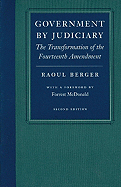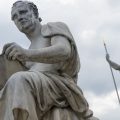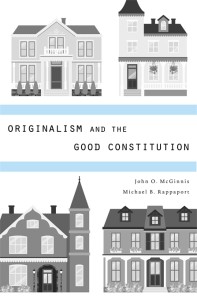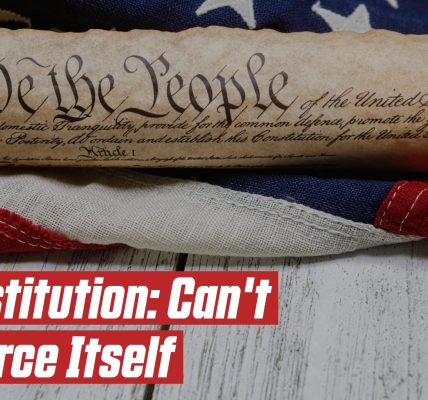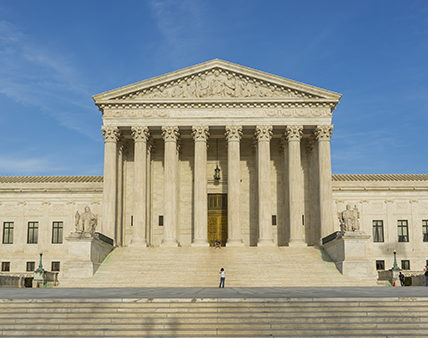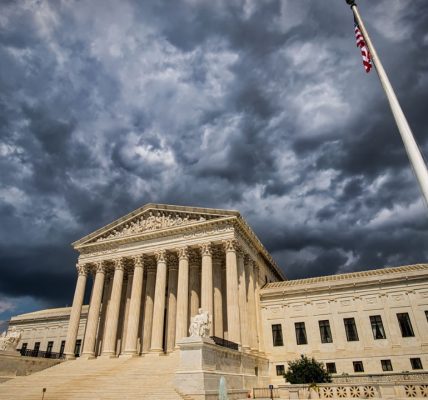by Raoul Berger
EDITOR’S NOTE: The following is an excerpt of the book (chapter 16) Government by Judiciary: The Transformation of the Fourteenth Amendment, Foreword by Forrest McDonald (2nd ed.) (Indianapolis: Liberty Fund, 1997).
A common historicist fallacy is to import our twentieth-century conceptions into the minds of the Founders. At the adoption of the Constitution the notion that judges, for example, could make law as an instrument of social change was altogether alien to colonial thinking. “Instrumentalism” was yet to come. In a valuable essay Morton J. Horwitz observed that “fear of judicial discretion had long been part of colonial political rhetoric” and described the prevalent jural conceptions that combined to circumscribe the judicial function in the eighteenth century.
There was first the fact that the common law rules—that is, judicially enunciated rules in the field of contracts and the like— “were conceived of as ‘ founded in principles, that are permanent, uniform and universal.’ ” Consequently, judges “conceived their role as merely that of discovering and applying preexisting legal rules” and derived “the rule of strict precedent” from such “preexisting standards discoverable by judges.” It followed that “judicial innovation itself was regarded as an impermissible exercise of will.”
Horwitz cites the statement of Chief Justice Hutchinson of Massachusetts in 1767: “the Judge should never be theLegislator: Because then the Will of the Judge would be the Law: and this tends to a State of Slavery.” Not long afterward Edward Gibbon wrote, “the discretion of the judge is the first engine of tyranny.” Horwitz concluded that “In eighteenth century America, common law rules were not regarded as instruments of social change; whatever legal change took place generally was brought about through legislation . . . American judges . . . almost never self-consciously employed the common law as a creative instrument for directing men’s energies towards social change.” Those who would rest an implied power of judges to act as such instruments of social change in the field of constitutional law have the burden of producing evidence that the Framers intended to depart from these norms. The exclusion of judges from the Council of Revision alone points to the contrary.
“Instrumentalism,” Horwitz shows, largely began to develop in the early nineteenth century—after the adoption of the Constitution; the examples he cites are all drawn from application of common law; not once is a judicial claim of power to alter a statute, let alone a constitution, asserted. To such negative implications may be added Hamilton’s statement in the very context of judicial review (Federalist No. 78), that the judicial role is one of “judgment” not “will,” that “to avoid arbitrary discretion in the courts, it is indispensable that they should be bound down by strict rules and precedents, which serve to define and point out their duty in every particular case that comes before them.”
What could be further from the current freewheeling conception of judicial review than these words by the foremost apologist for judicial review, designed to reassure opponents of ratification? Courts were not merely to be “bound down” by the “chains of the Constitution,” but by “strict rules and precedents” as well. Even when the tide began to turn toward instrumentalism, Judge William Cranch of the Circuit Court for the District of Columbia stated in his preface to 1 Cranch of the Supreme Court’s decisions (1803): “In a government which is emphatically stiled a government of laws, the least possible range ought to be left for the discretion of the judge.”
There are also contemporary judicial statements that display the circumspection with which the judges approached the novel task of judicial review. In one of the earliest State cases, Commonwealth v. Caton(1782), Edmund Pendleton, president of the highest Virginia court, stated: “how far this court . . . can go in declaring an act of the Legislature void, because it is repugnant to the Constitution, without exercising the Power of Legislation, from which they are restrained by the same Constitution? is a deep, important, and I will add, an awful question” —which, he rejoiced, he had no occasion to decide. Subsequently, Pendleton served as the presiding officer of the Virginia Ratification Convention, and it is unlikely that he translated the examples furnished by his colleagues, all addressed to checking encroachments on reserved powers, into unlimited power of review.
No one remotely intimated that there would be judicial power to rewrite the Constitution. Nothing could have been better calculated to defeat ratification than a claim of judicial power that would leave the States altogether at the mercy of the federal courts; and such State jealousy was met by the Judiciary Act of 1789 which withheld from the inferior federal courts jurisdiction of cases “arising under” the Constitution.
Even with respect to the policing function, Justice James Iredell, who had been one of the most cogent advocates of judicial review, stated in 1798 that the power to declare a legislative act “void is of a delicate and awful nature, [hence] the Court will never resort to that authority but in a clear and urgent case.” In M’Culloch v. Maryland Chief Justice Marshall indicated that something like a “bold and plain usurpation to which the constitution gave no countenance” was required “to invoke the judicial power of annulment.” And in 1824 he averred that “judicial power is never exercised for the purpose of giving effect to the will of the judge; always for the purpose of giving effect to the will of the legislature.”
For Chief Judge Cardozo, Marshall’s statement was the expression “of an ideal,” which “Marshall’s own career” illustrates “is beyond the reach of human faculties to attain.” It would be more accurate to say, as Charles L. Black pointed out, that it reflected the colonists’ conception that “Law is a body of existing and determinate rules,” which “ is to be ascertained ” by the judge by consulting “statutes, precedents and the rest,” and that “the function of the judge was thus placed in sharpest antithesis to that of the legislator,” who alone was concerned “with what the law ought to be.”
So Marshall understood the judicial role: “Courts are mere instruments of the law and can will nothing. When they are said to exercise a discretion, it is a mere legal discretion, a discretion to be exercised in discerning the course prescribed by law ” —that is, by the legislators or the people gathered in Convention.
Marshall, it needs always to be remembered, had fought on behalf of judicial review in the Virginia Ratification Convention and was well aware of the views entertained by the Founders. His 1824 statement confirms that among the presuppositions the Founders brought to the several conventions was a bias against judicial discretion and policymaking.
There is no evidence whatsoever that these presuppositions were thrown overboard in the creation of the judiciary. To the contrary, the established presumption is that the Founders created a judiciary in familiar terms, except insofar as they envisaged its “policing” function. Judicial alteration of the fundamental law ran counter to their belief in a “fixed Constitution”; it was altogether outside their contemplation, as Hamilton made plain. Justice Frankfurter, therefore, was close to the mark in stating that the Framers were on guard “against the self-will of the courts.”
SOURCE: Tenth Amendment Center – Read entire story here.
